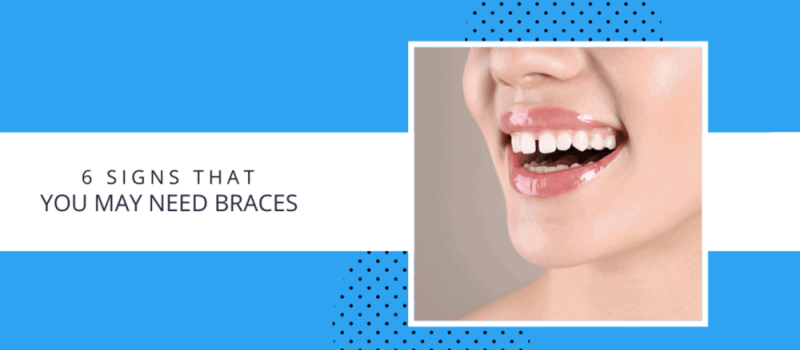
Orthodontic treatment is a common way to correct dental malocclusions and improve oral health. Braces are one of the most popular orthodontic treatments for misaligned teeth.
However, not everyone needs braces. In this article, we will discuss six signs that indicate you may need braces.
1. Overcrowded Teeth
Overcrowded teeth occur when there is not enough space in the jaw for all teeth to fit properly. This can cause teeth to grow crooked or overlap each other.
Overcrowded teeth can lead to tooth decay, gum disease, and difficulty chewing. Braces can help to align teeth properly and create more space in the jaw.
2. Misaligned Bite
A misaligned bite, also known as malocclusion, can occur for a variety of reasons, including genetics, thumb sucking, or injury to the teeth or jaw. It is a common problem that affects both children and adults, and if left untreated, it can lead to a range of oral health issues.
One of the most common signs of malocclusion is discomfort or pain in the mouth or jaw. This can be caused by the teeth and jaw not fitting together properly, which can put pressure on the surrounding muscles and tissues.
Additionally, malocclusion can make it difficult to chew food properly, leading to digestive problems and malnutrition.
3. Gaps Between Teeth
Gaps between teeth, also known as diastema, can occur for various reasons, including tooth loss, genetics, and gum disease. Although some people find gaps between teeth attractive, they can cause oral health problems, such as gum disease and tooth decay. Braces can help to close gaps between teeth and improve oral health.
4. Jaw Pain
Jaw pain is a common complaint among individuals of all ages. It can be caused by a variety of factors, including tooth decay, gum disease, trauma, and misaligned teeth.
Misaligned teeth, also known as malocclusion, can cause jaw pain and other oral health problems. Luckily, braces can be used to correct misaligned teeth and malocclusion, which can alleviate jaw pain and improve oral health.
5. Difficulty Chewing or Speaking
Misaligned teeth, malocclusion, and other dental problems can cause difficulty chewing or speaking and lead to other oral health problems. Braces are an effective treatment for these issues, improving oral health, and enhancing a person’s quality of life.
If you are experiencing these issues, it is important to consult with a qualified orthodontist to discuss your options for treatment.
6. Self-Consciousness About Your Smile
Are you feeling self-conscious about your smile? Do you avoid smiling in photos or social situations? If so, you’re not alone. Many people struggle with dental problems that affect the appearance of their smile. Fortunately, there is a solution – braces.
Braces can help to correct dental problems and improve the appearance of your smile, which can boost your confidence and self-esteem.
Key Takeaways
Overall, braces are an effective way to correct dental problems and improve oral health. If you experience any of the signs mentioned in this article, consult an orthodontist to determine if braces suit you. Remember, early detection and treatment of dental problems can prevent more serious issues from developing.
Searching for the best orthodontist in Bend, Oregon or Redmond, Oregon? Look no further than Sullivan Orthodontics! With our state-of-the-art technology and personalized treatment plans, we can help you achieve the smile of your dreams. Contact us today to schedule a consultation and start your journey toward a healthier, happier smile with the best orthodontist in Bend, Oregon and Redmond, Oregon.
